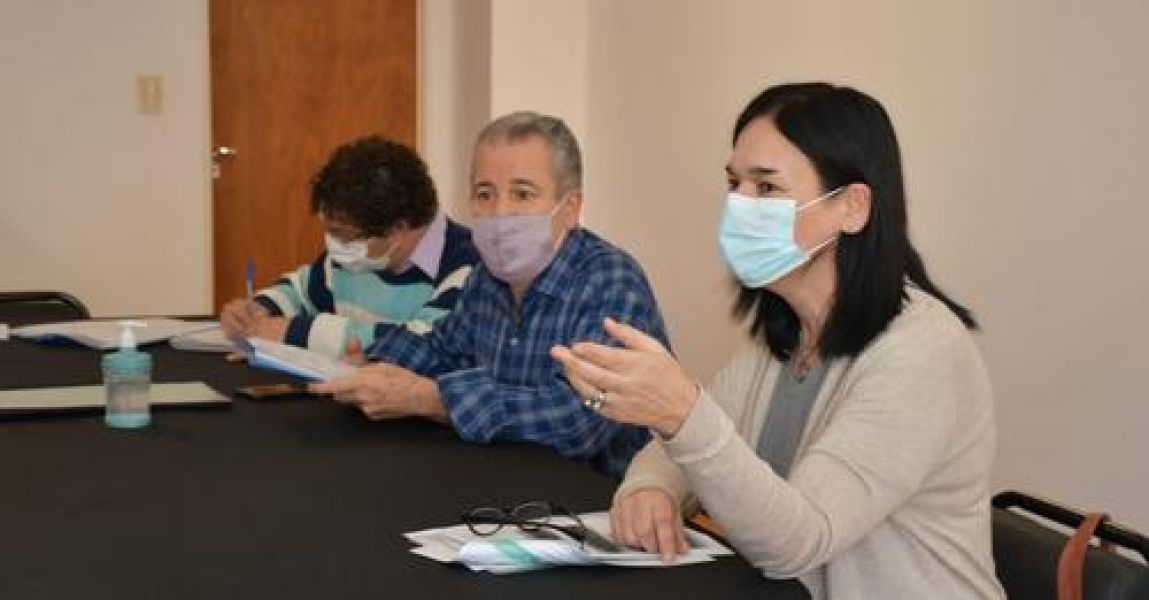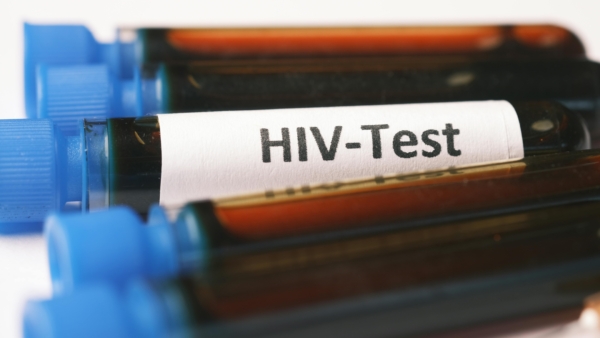
There will be a new law on sexual diseases, HIV and viral hepatitis
Translation via Deepl.com. For original article in Spanish, please scroll down.
A new law is being evaluated to update the existing legislation to the scientific advances registered for sexually transmitted diseases, HIV and viral hepatitis.
For this purpose, the Senate Public Health Commission met with professionals from the HIV and STI Program of the Ministry of Public Health. A bill on Integral Assistance and Research on Acquired Immunodeficiency Syndrome, Sexually Transmitted Infections and Viral Hepatitis was analyzed.
In this regard, the legislative initiative seeks to update the regulatory framework on the matter, taking into account that both the current provincial Law No. 6660 and the national Law No. 23.798 date back to 1992 and 1990 respectively, and that the treatments and scientific advances in the field of AIDS and other Sexually Transmitted Infections have been greatly updated.
The bill declares of provincial interest the prevention, diagnosis, treatment, integral assistance, rehabilitation and research on Acquired Immune Deficiency Syndrome (HIV/AIDS), Sexually Transmitted Infections (STI) and Viral Hepatitis, including their derived pathologies, as well as the measures to avoid their propagation.
It also declares the prevention and early detection of HIV/AIDS, STIs and Viral Hepatitis in pregnant women to be of provincial interest and establishes the prevention of perinatal or vertical transmission as a priority.
The initiative promotes the quality of life, the inclusion, permanence and articulation of networks of people living with or affected by HIV/AIDS, STIs and Viral Hepatitis as a mechanism to eliminate discriminatory and exclusionary practices and provides for the repeal of Law 6.660.
Infection rate
The meeting recognized an increase in the rate of infection in the trans and homosexual population, but also in other heterosexual groups of different age groups and referred to the need to increase testing -which is done without the need for a doctor’s order-, to disseminate the use of condoms and to advance in actions against discrimination.
AIDS cases
Dr. Laura Caporaletti and Dr. Marcela Monterichel, director and supervisor of the HIV, STI and Viral Hepatitis Program of the Ministry of Health, considered that it is necessary to provide the province with pioneering legislation that takes into account the medical advances that, for example, now consider HIV as a chronic disease.
They reported that the number of HIV cases in Salta is still striking despite a drop in 2020 due to the restrictions imposed by the pandemic, as well as the number of cases of congenital syphilis, emphasizing the control of pregnant women to avoid vertical transmission of infections during pregnancy, childbirth or breastfeeding. They suggested extending the delivery of milk until the baby is 18 months old and the management of a building for the use of patients from the interior of the country under treatment, under one of the NGOs.
Habrá nueva ley de enfermedades sexuales, VIH y hepatitis virales
Una nueva ley se evalúa para actualizar la legislación existente a los avances científicos registrados por enfermedades de transmisión sexual, VIH y hepatitis virales.
A esos efectos la Comisión de Salud Pública del Senado se reunió con profesionales del Programa de VIH e ITS del Ministerio de Salud Pública. Se analizó un proyecto de Ley de Asistencia Integral e Investigación sobre el Síndrome de Inmunodeficiencia Adquirida, las Infecciones de Transmisión Sexual y las Hepatitis Virales.
Al respecto la iniciativa legislativa busca actualizar el plexo normativo en la materia, teniendo en cuenta que tanto la actual Ley provincial N° 6660, como la Ley nacional N° 23.798, datan del año 1992 y 1990 respectivamente, habiéndose actualizado enormemente los tratamientos y avances científicos tanto en materia de SIDA como de otras infecciones de Transmisión Sexual.
El proyecto de Ley declara de interés provincial la prevención, diagnóstico, tratamiento, asistencia integral, rehabilitación e investigación sobre el Síndrome de Inmunodeficiencia Adquirida (VIH/SIDA), las Infecciones de Transmisión Sexual (ITS) y las Hepatitis Virales, incluyendo la de sus patologías derivadas, como así también, las medidas tendientes a evitar su propagación.
Asimismo, declara de interés provincial la prevención y detección temprana de VIH/SIDA, ITS y Hepatitis Virales en la mujer embarazada y establece el carácter prioritario de la prevención de la transmisión perinatal o vertical.
La iniciativa promueve la calidad de vida, la inclusión, permanencia y articulación de redes de personas que vivan o estén afectadas por VIH/SIDA, ITS y Hepatitis Virales como un mecanismo para eliminar las prácticas discriminatorias y de exclusión y dispone la derogación de la Ley 6.660.
Tasa de contagios
En el encuentro se reconoció un aumento en la tasa de contagio en la población trans y homosexual, pero también en otros grupos heterosexuales de distintas franjas etarias y se refirieron a la necesidad de incrementar testeos -que se hacen sin necesidad de pedido médico-, difundir el uso del preservativo y avanzar en acciones contra la discriminación.
Casos de SIDA
Las doctoras Laura Caporaletti y Marcela Monterichel, directora y supervisora del Programa de VIH, ITS y Hepatitis Virales del ministerio de Salud, consideraron que resulta necesario dotar a la provincia de una legislación pionera que contemple los avances médicos que por ejemplo hoy consideran al HIV como una enfermedad crónica.
Relataron que en Salta sigue siendo llamativo el número de casos de VIH pese a una baja en 2020 adjudicada a las restricciones que impuso la pandemia, del mismo modo que los casos de sífilis congénita, poniendo énfasis en el control de embarazadas para evitar la transmisión vertical de las infecciones tanto en la gestación, como en el parto o el período de lactancia. Sugirieron ampliar la entrega de leche hasta los 18 meses de vida del bebé y la gestión de un inmueble para uso de pacientes del interior en tratamiento, bajo alguna de las ONG.








